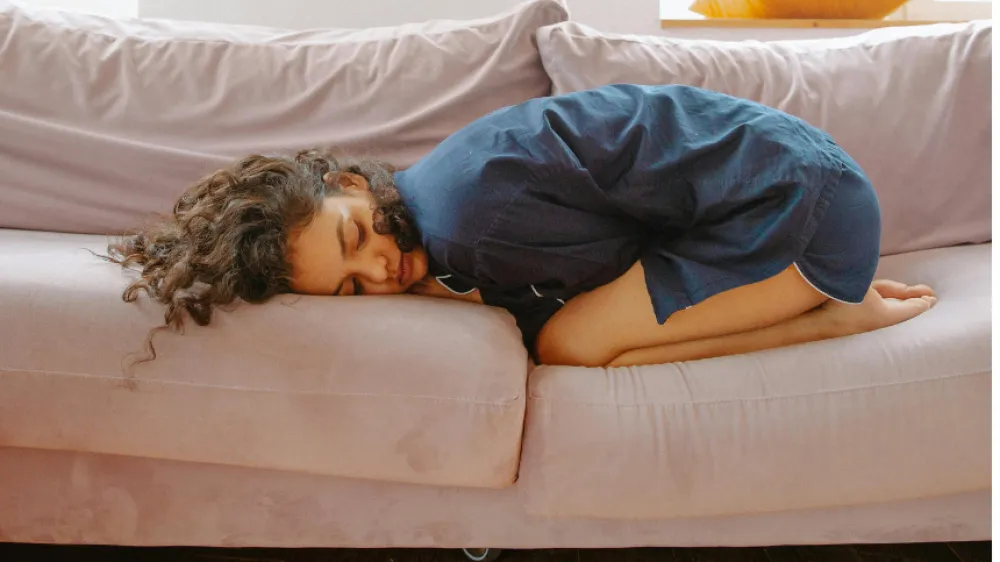Providing your location allows us to show you nearby locations and doctors.
Norovirus: What it is and how to avoid it

01/09/2025
By Tina F. Fakhoury, FNP, Family Medicine, Nuvance Health
Do you think you have a stomach virus or bug? This could be a norovirus and its symptoms are very unpleasant. Here is what you need to know about norovirus, including signs you might have it, when to see your primary care doctor and ways to prevent spreading the virus.
Find a Nuvance Health primary care provider near me.
What is norovirus?
Norovirus is commonly referred to as a stomach virus or stomach bug. It is a highly contagious virus that affects all ages and can make you feel very uncomfortable. The virus triggers inflammation in your stomach and intestines, otherwise known as gastroenteritis. It ranks among the most common causes of food-borne outbreaks worldwide. It spreads quickly in crowded areas such as local restaurants, schools, offices and cruise ships.
How can you tell if you have norovirus?
Norovirus symptoms can make you feel uncomfortable and downright miserable.
You might experience the following if you have norovirus:
Nausea and vomiting
Diarrhea
Stomach pain
Fever
Headache
Body aches
Fatigue
Symptoms of the stomach virus usually appear within 12 to 48 hours after exposure and can stick around for one to three days. If you’re starting to feel better, don’t think you’re out of the woods just yet. You are most contagious during the first few days after feeling better and can remain contagious for at least two weeks.
Related content: Not feeling well? Your primary care doctor can help.
How do you get norovirus?
Norovirus spreads through vomit or the fecal-oral route, meaning the virus is in the feces of someone who is infected. When proper hygiene measures aren’t followed, particles from vomit or feces can contaminate food, water, objects or surfaces. You can become infected by consuming contaminated food or water or by touching contaminated surfaces or objects and then touching your mouth, nose or eyes.
When should you go to the doctor if you have norovirus?
While most people recover without complications, there are times when you should seek medical help from your primary care physician. Depending on the severity of your symptoms, your doctor may be able to accommodate a telehealth visit.
Find a doctor for a telehealth visit.
You should make an appointment with your primary care doctor or go to an urgent care if the following norovirus symptoms last more than a few days:
Signs of dehydration such as dry mouth, decreased urination or lightheadedness.
Bloody stools.
High fever (above 101.5 degrees).
You have a weak immune system or underlying medical conditions.
Elderly adults and young children are more susceptible to becoming dehydrated, so be sure to keep a close eye on them.
Find a Nuvance Health-GoHealth urgent care location near me.
How can you avoid catching and spreading norovirus?
Practicing good hygiene is crucial in situations where norovirus spreads easily like after using the restroom, before eating or preparing food and after being in contact with someone who is infected.
Wash your hands. Rub your hands together with soap and warm water for at least 20 seconds.
Wash your hands are soiled but especially after:
Using the restroom
Changing diapers
Shaking hands
Touching common surfaces
Caring for people who are sick
Eating or handling food
Before giving yourself or someone else medicine
Use hand sanitizer. While hand sanitizer should not replace washing your hands with soap and water, it is a good alternative.
Don’t touch your face. Avoid touching your mouth, nose and eyes as these are common entry points for the stomach virus.
Handle and prepare food safely. Wash your fruits and vegetables and cook meats and shellfish to proper temperatures.
Clean and disinfect surfaces. Regularly clean and sanitize kitchen utensils, counters and surfaces as well as high-traffic areas like doorknobs, refrigerator handles and TV remotes. Disinfect surfaces contaminated with norovirus immediately. Wear disposable gloves, clean the area with bleach, wipe it up with paper towels, take out the trash and then wash your hands when you are done.
Do your laundry: Clothing soiled with vomit or feces should be washed immediately. Wash the items with hot water and detergent and then dry them at the highest heat setting. Wear disposable gloves and then wash your hands after.
Related content: Top tips for keeping your lungs healthy
How do you get rid of norovirus?
Unfortunately, there is not a medication to treat people with norovirus; you must let it run its course. Your body fights norovirus on its own without any specific treatment. But hydration is key, so drink plenty of fluids to avoid it. Consider drinking water, herbal teas or broths to stay hydrated. Squeezing fresh lemon in your water or tea can provide vitamin C, hydration, healthy digestion and support your immune system.
Drinking clear broths like chicken or vegetable are gentle on your stomach and provides essential nutrients your body needs. For replenishing lost fluids and essential minerals, consider sipping on sports drinks with electrolytes. These measures can help alleviate discomfort and support your body’s recovery.
Related content: Your guide to healthy winter skin
The bottom line: If you have norovirus, there are ways to manage your symptoms and prevent spreading. Stay hydrated by drinking fluids rich in electrolytes, wash your hands with soap and water, regularly disinfect high-traffic areas and avoid touching your face.